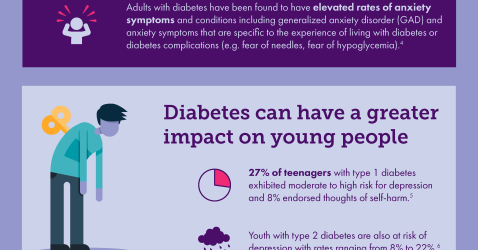What Is The Relationship Between Stress And Chronic Health Conditions Like Heart Disease?
If you’ve ever wondered about the connection between stress and chronic health conditions like heart disease, you’re in the right place. We all experience stress at some point in our lives, but understanding how it can impact our overall health is crucial. In this article, we will explore the relationship between stress and chronic health conditions, specifically focusing on heart disease. Discover how stress can contribute to the development and worsening of heart disease, and learn about potential strategies to manage and alleviate stress for a healthier, happier life.

Overview of Stress and Chronic Health Conditions
Stress is a natural reaction to life’s demands and challenges. It is a feeling of emotional or physical tension, often triggered by factors such as work or personal problems. Chronic health conditions, on the other hand, are long-term illnesses that require ongoing medical management. Examples of common chronic health conditions include diabetes, asthma, and heart disease.
Understanding Stress and Its Impact on the Body
When you experience stress, your body goes through a series of physiological changes. This is known as the stress response or the “fight or flight” response. During this response, hormones such as adrenaline and cortisol are released, increasing your heart rate, blood pressure, and breathing rate. These changes are helpful in short-term situations, but chronic stress can take a toll on the body.
The effects of chronic stress on the body are far-reaching. Prolonged exposure to stress hormones can disrupt various body systems, such as the immune, digestive, and cardiovascular systems. This can lead to a higher risk of developing chronic health conditions, including heart disease.
Link between Stress and Heart Disease
Heart disease is a leading cause of death worldwide, and its prevalence continues to rise. Stress has been identified as a significant risk factor for heart disease. When you are under stress, your body releases stress hormones that can cause an increase in blood pressure, heart rate, and inflammation. Over time, these effects can damage the arteries and increase the risk of developing heart disease.
Mechanisms Connecting Stress and Heart Disease
There are several mechanisms that connect stress and heart disease. One of these mechanisms is inflammation and oxidative stress. When stress hormones are released, they can trigger an inflammatory response in the body. This chronic inflammation can lead to the buildup of plaque in the arteries, increasing the risk of heart disease.
Stress can also affect blood pressure and heart rate. During times of stress, your body goes into “fight or flight” mode, causing a temporary increase in blood pressure and heart rate. If this response occurs frequently, it can strain the cardiovascular system and contribute to the development of heart disease.
Additionally, chronic stress can impact cholesterol levels. Stress hormones can affect the body’s ability to regulate cholesterol, leading to an imbalance between “good” and “bad” cholesterol. This imbalance can further increase the risk of heart disease.

Stress Management Techniques for Heart Disease Prevention
Managing stress is crucial for preventing heart disease and promoting overall heart health. There are several stress management techniques that can be incorporated into your daily routine. Relaxation techniques such as deep breathing, meditation, and yoga have been shown to reduce stress levels and promote a sense of calm.
Regular exercise and physical activity are also effective in managing stress. Engaging in activities you enjoy, such as walking, swimming, or dancing, can help reduce stress and improve overall well-being. Exercise releases endorphins, which are natural mood elevators.
Adopting healthy lifestyle habits can also contribute to stress reduction and heart disease prevention. Eating a balanced diet, getting enough sleep, and avoiding excessive alcohol consumption and smoking are all key components of a heart-healthy lifestyle.
Psychological Factors and Heart Disease
Psychological distress plays a significant role in the development and progression of heart disease. Conditions such as anxiety and depression have been identified as risk factors for heart disease. These psychological factors can lead to unhealthy behaviors, such as poor diet, lack of exercise, and smoking, which can further increase the risk of heart disease.
Coping strategies for psychological well-being are essential in managing stress and preventing heart disease. Seeking support from friends, family, or a mental health professional can help you develop effective coping mechanisms. Engaging in activities you enjoy, such as hobbies or creative outlets, can also provide a sense of fulfillment and help manage stress.

Effectiveness of Stress Reduction in Reducing Heart Disease Risk
Research studies have demonstrated the effectiveness of stress reduction techniques in reducing the risk of heart disease. Programs aimed at reducing stress through relaxation techniques, exercise, and stress management skills have shown positive outcomes in terms of improving heart health.
By reducing stress levels and promoting a healthier lifestyle, stress reduction techniques can help lower blood pressure, improve cholesterol levels, and decrease inflammation in the body. These factors contribute to a lower risk of developing heart disease and experiencing adverse cardiac events.
Implications for Clinical Practice
Within the field of clinical practice, it is essential to screen patients with chronic health conditions for stress levels. Identifying and addressing stress as part of the treatment plan can have a significant impact on patient outcomes. Integrating stress management techniques, such as relaxation techniques and lifestyle interventions, into treatment plans can aid in disease management and prevention.
Collaborative care models that involve multiple healthcare professionals, including doctors, nurses, psychologists, and dieticians, are also crucial in managing both stress and heart disease. This interdisciplinary approach ensures that patients receive comprehensive care tailored to their individual needs.
Public Health Implications and Policy Recommendations
Public health initiatives and educational campaigns are important in raising awareness about the relationship between stress and chronic health conditions, particularly heart disease. By providing information on stress reduction techniques and the importance of a healthy lifestyle, individuals can be empowered to take control of their heart health.
Workplace stress management initiatives can also play a significant role in preventing heart disease. Employers can implement programs and policies that promote stress reduction, such as flexible work schedules, wellness programs, and access to mental health resources. By creating a supportive work environment, employers can contribute to the overall well-being of their employees.
Integration of stress management into healthcare policies and guidelines is crucial for addressing the impact of stress on heart disease. By recognizing the connection between stress and chronic health conditions, policymakers can ensure that stress management is prioritized in healthcare systems and that resources are allocated to support stress reduction initiatives.
Conclusion
In conclusion, stress and chronic health conditions, particularly heart disease, are closely linked. Chronic stress can significantly impact the body, contributing to the development and progression of heart disease. Understanding the mechanisms connecting stress and heart disease can help healthcare professionals develop effective strategies for prevention and management. By incorporating stress reduction techniques and promoting a healthy lifestyle, individuals can reduce their risk of heart disease and improve their overall well-being. Moreover, public health initiatives and healthcare policies should prioritize stress management to mitigate the burden of chronic health conditions on individuals and society as a whole.

















